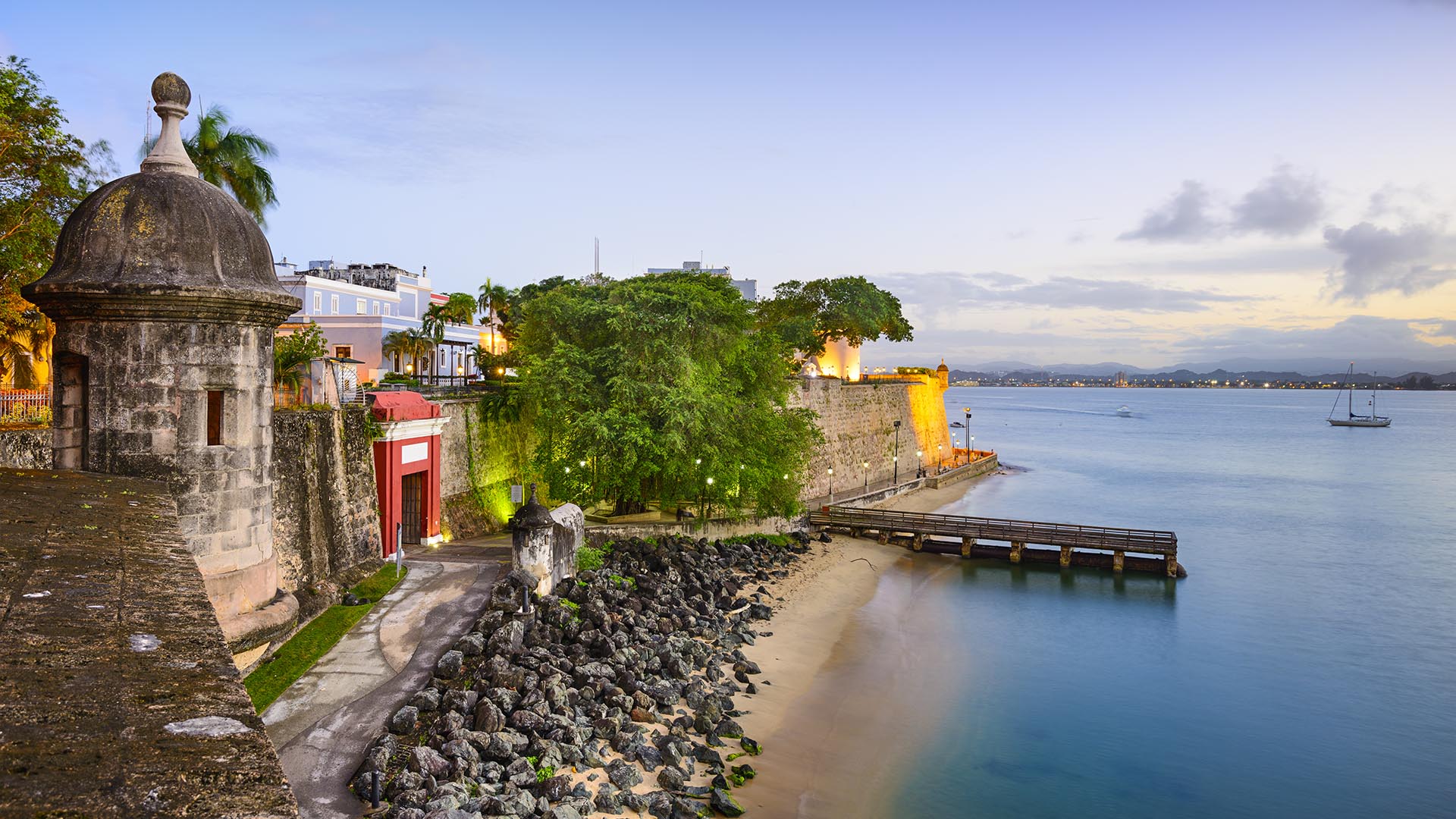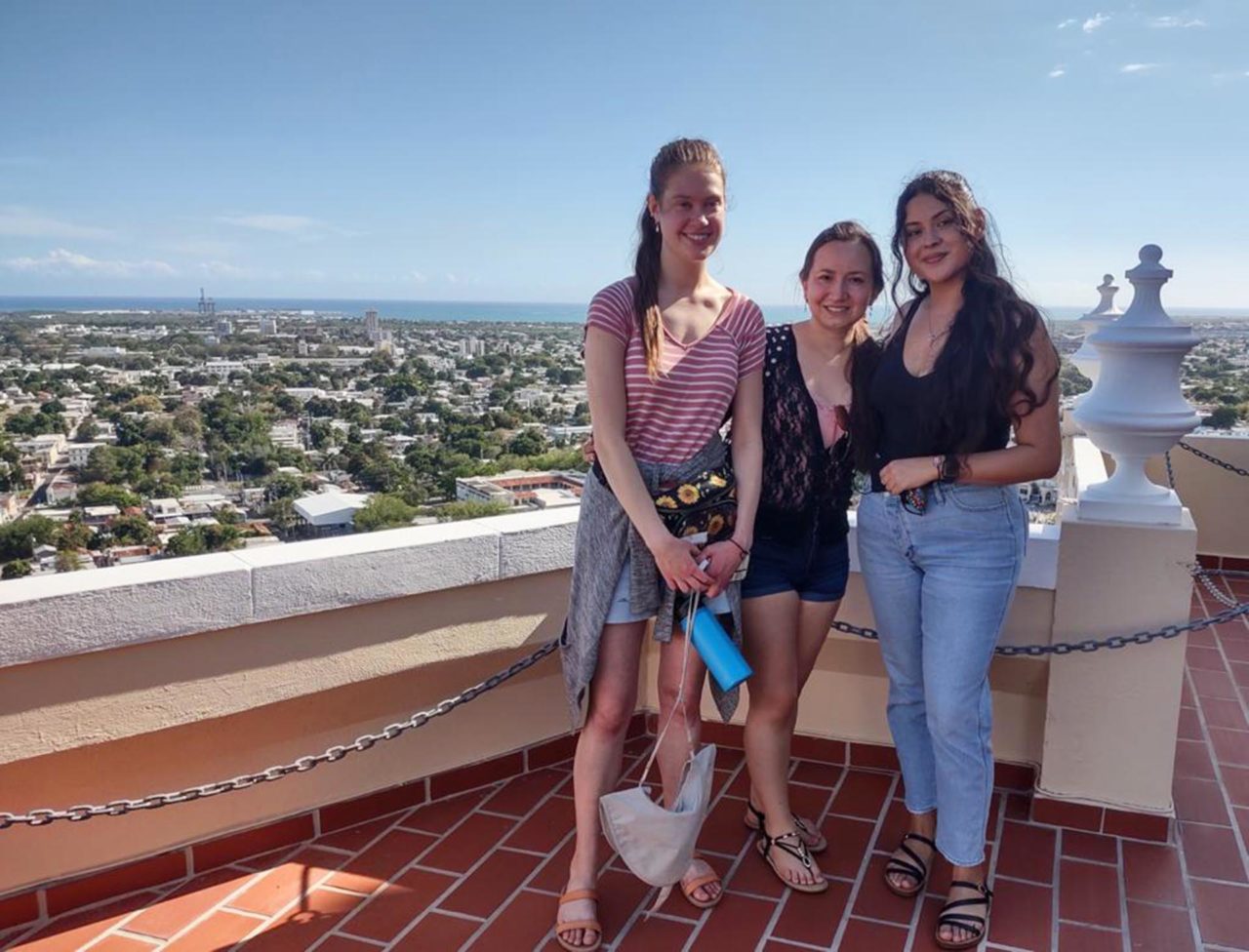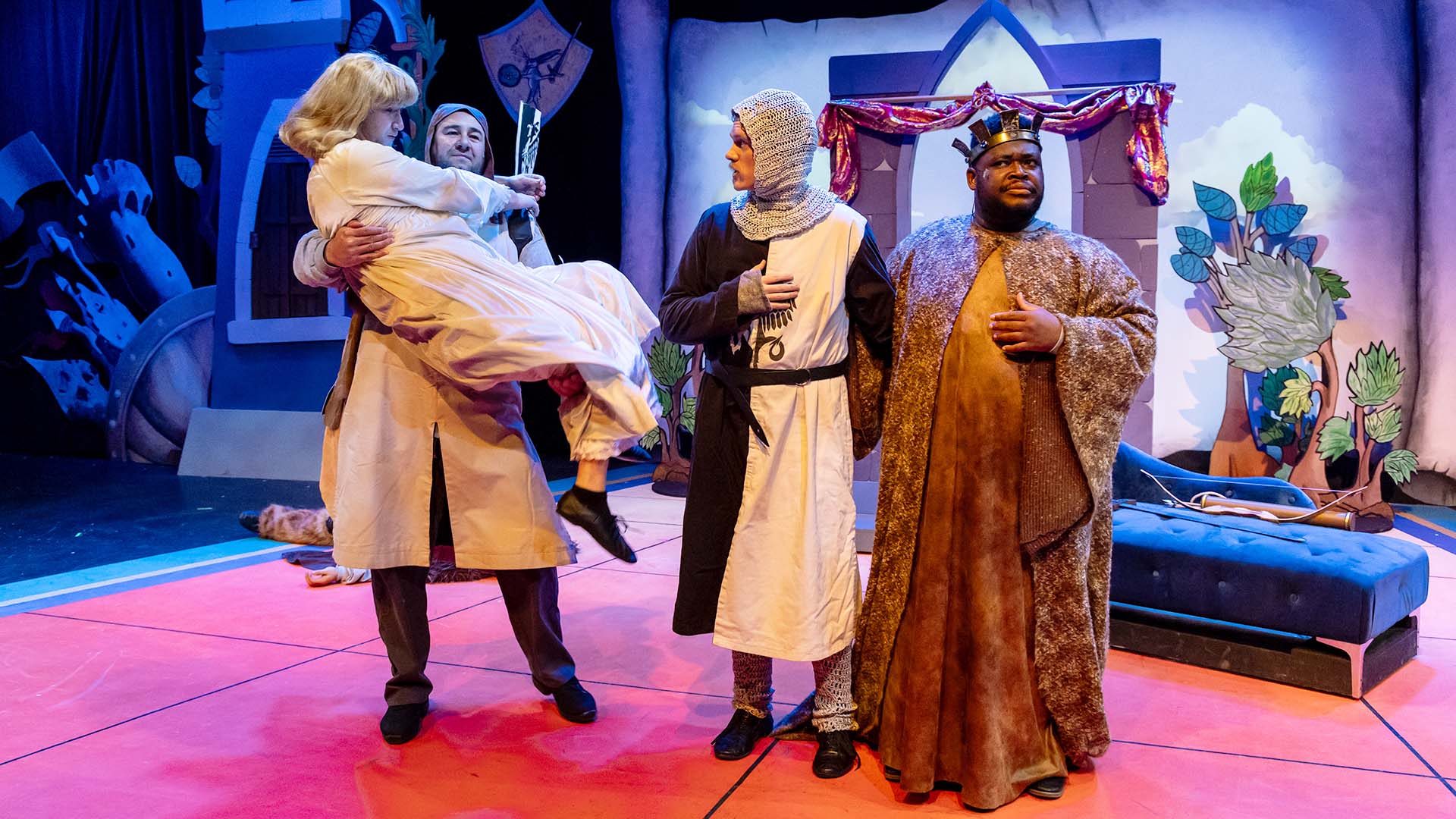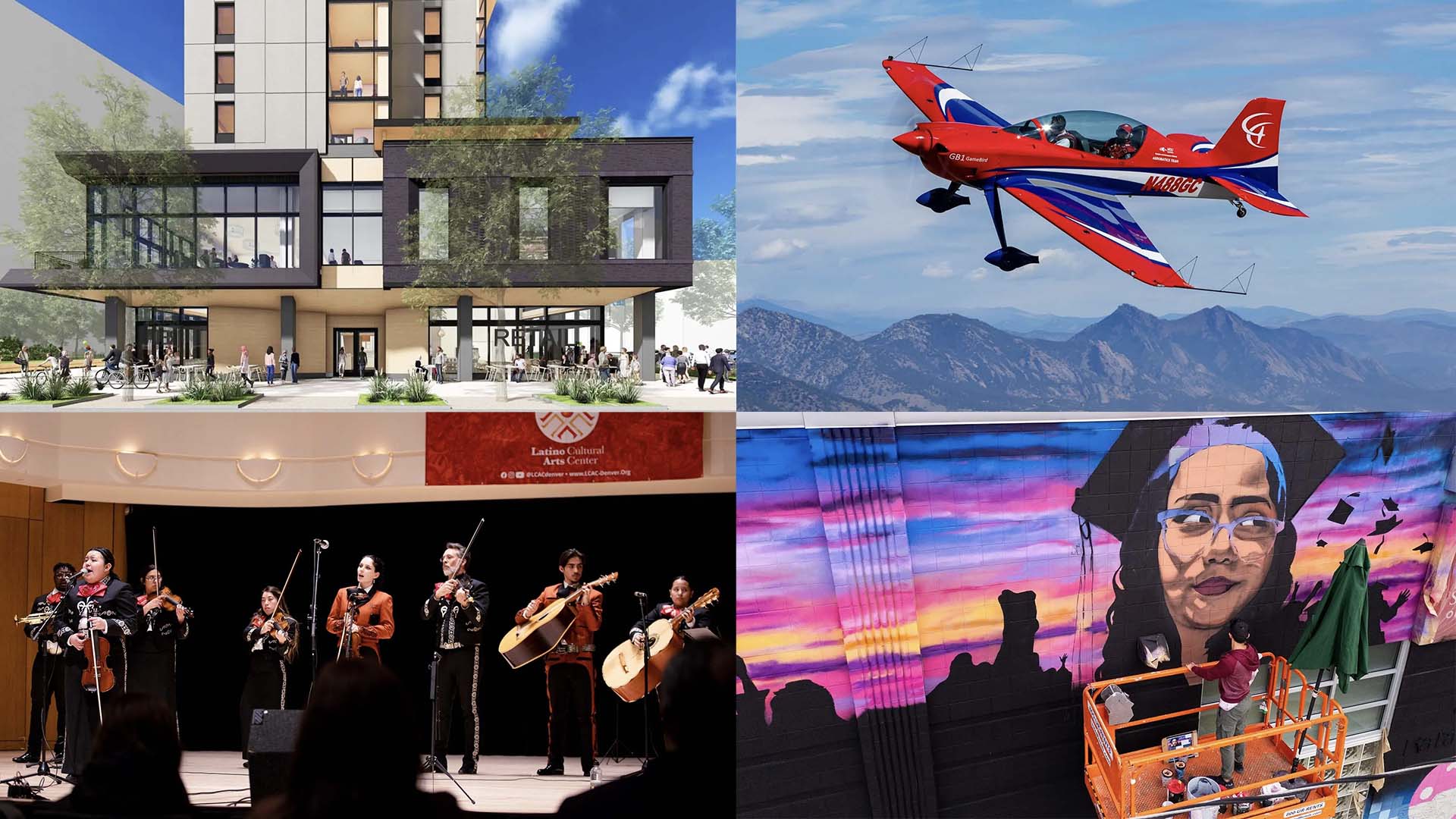After a two-year hiatus, study-abroad and long-distance travel opportunities are back
MSU Denver professors take students to Puerto Rico, Germany, Poland, Greece, Cyprus, Morocco, Costa Rica and more.

If travel broadens the mind, then the past two years have been decidedly narrow for most students.
The pandemic brought a hard stop to studying abroad and most class-based trips. But finally, after many months of sofa-sprawling and remote lessons, students are starting to travel again. And by all accounts, it feels pretty good.
Just ask students in the Education, Culture and Politics: A Puerto Rican Perspective course in Metropolitan State University of Denver’s School of Education. These students recently supplemented months of classroom work with a spring-break visit to the U.S. territory they were studying.
“The excitement only fully hit me once I got my plane tickets — I remember doing a little dance when they arrived,” recalled student Toni Roush, who has long been interested in teaching overseas. “The trip felt like a rare opportunity to dip my toes in and actually see classrooms in action in another country.”
And according to fellow student Alondra Deras, not all the education happened at the schools. “Obviously, it was invaluable to get so many insights into teaching approaches and how classrooms work in Puerto Rico,” she said. “But I also walked away with a much better understanding of the people, language and customs, as well.”

‘Real thing’
This summer, MSU Denver students pursuing a wide range of courses — including History, languages, Art and even Water Management — will benefit from extra learning in Germany, Poland, Greece, Cyprus, Morocco and Costa Rica. In each case, the trips abroad will be key to their college experience and an opportunity to build upon all they have studied in the classroom.
Summer Trentin, Ph.D., associate professor of Art History, Theory and Criticism at MSU Denver, has been running international student trips for five years. And she is emphatic about their value.
“It’s so important for my students to experience art and architecture in person because context makes a huge difference,” she said from her latest visit to Greece last month. “Knowing that a statue is 12 feet tall is one thing, but actually seeing it tower over you is quite another.”
Even though the wide availability of digital images and videos now makes remotely accessing artworks fairly easy, Trentin argued that it’s still no substitute for the real thing: “Art will always look and feel different in a dimly lit church, city square or Renaissance palace than it would in an isolated photograph.”
Raising your game
Studying in unfamiliar settings often brings out the best in students because it takes them out of their comfort zones. It compels them to roll up their sleeves, respond to circumstances and learn quickly.
Such an ethos powers MSU Denver’s Service Learning Program, wherein students complement classroom time with community-based experience — often based overseas. The basic premise is simple: You can never learn everything in a classroom.
“The real world doesn’t look like a book,” said Lori McKinney, Ph.D., senior program manager in Learning and Development at MSU Denver. “Sometimes, you get out there and things just don’t go according to plan.”
But, she said, students in the program get a valuable opportunity to take what they have learned in the field back to the classroom, then talk it over with their faculty members and peers. “And that helps them figure out what worked and what didn’t work — and if so, why not?” McKinney said. By combining class study and practical experience, they find the best results.
Learning curve
Unsurprisingly, no student ever comes back from a study trip talking only about the schoolwork. The cultural and social aspects of these visits play a big role, particularly for students who may have never left the continental U.S. before.
RELATED: We are the Globerunners
One person who has especially noticed this is Lina Martin Corredor, Ph.D., assistant professor in the Culturally and Linguistically Diverse Education program. She led the recent spring-break visit to Puerto Rico and was struck by the impact it had on her students.
“Here in Denver, our students have thoroughly explored Puerto Rico’s history, education and politics,” she said. “But while on the trip, they got to directly experience all kinds of local cultural and linguistic perspectives, and that absolutely helped them understand the (U.S. territory) in a more nuanced way.”
Trentin has found much the same during her repeated visits to Europe. “Our study trips are short but intense,” she said. “Besides art, the students get to experience so many factors that help shape our humanity, such as food, language, music, climate and landscape. There’s a real sense of cultural immersion.”
Big decisions
Looking back over the pandemic, everyone seems to agree on one thing: The absence of intercultural learning opportunities over the past two years really underscored their value. “I feel a genuine sense of relief knowing we can once more offer such memorable and meaningful experiences to our students,” Martin Corredor said.
RELATED: Lessons from Lowcountry
And while all of MSU Denver’s upcoming trips will present great educational and cultural opportunities, many students will also grasp something else that’s truly precious: the opportunity to learn a lot about themselves.
“Navigating a foreign country within the structure of a study-abroad course can be a very formative experience for younger students,” Trentin said. “It’s a great way for them to develop confidence, start questioning things and deepen their general understanding of the world.”
For many students, these trips will also often lead to new interests and even big decisions, as Trentin can well attest.
“Looking back today, I credit my whole career path to the impact of a study-abroad program I attended when I was in college,” she said. “For me, it was literally life-changing.”




